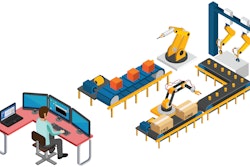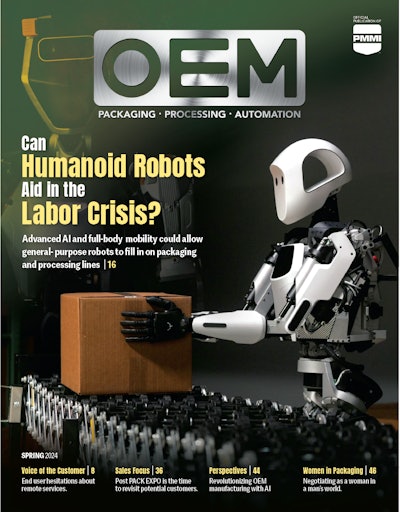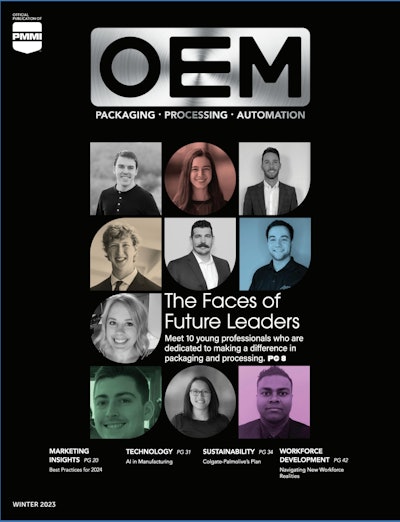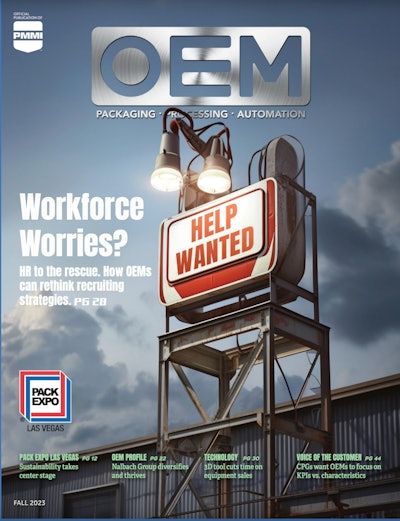
Manufacturing—which includes packaging and processing OEMs—is on the precipice of a large percentage of skilled jobs remaining unfilled, beyond even the dire circumstances the industry has faced since 2017.
At the current pace and without significant changes to address workforce challenges, half of the 3.8 million jobs expected between 2024 and 2033 will remain vacant, according to Deloitte and The Manufacturing Institute’s new report, “Taking charge: Manufacturers support growth with active workforce strategies.” The report is based on an online survey of more than 200 U.S. manufacturers, interviews with senior executives from manufacturing organizations of all sizes and across all sectors, extensive analysis of secondary data on labor supply and demand, and analysis from Deloitte’s economic team.
This isn’t a new revelation by any means, but with the U.S. manufacturing industry emerging from the pandemic on a strong growth trajectory, continued growth is expected over the next 10 years as companies meet evolving customer demands, de-risk their supply chains, and leverage government incentives and policies, unfulfilled positions could reach a breaking point.
Manufacturing is aware of the crisis, as 65% of respondents in the National Association of Manufacturers’ 2024 Q1 outlook pointed to attracting and retaining talent as their primary business challenge.
The demand for digital skills is accelerating as operations and products become more complex and information from smart connected devices and systems needs to be integrated and analyzed.
“Manufacturers recognize that the workforce is evolving,” says — Carolyn Lee, president and executive director, The Manufacturing Institute. “Pandemic-driven shifts have already created hundreds of thousands of new jobs, and now we are seeing increased demand for digital skills that need to be met or risk further widening of the talent gap.”
Deloitte and The Manufacturing Institute’s (MI) analysis shows that there has been a 75% increase in demand for simulation and simulation software skills in the last five years, sought mostly for technology-enabled production or testing roles. Roles like statisticians, data scientists, engineers, logisticians, computer and information systems managers, software developers, and industrial maintenance technicians are likely to grow at the fastest pace between 2022 and 2032. For production roles, the fastest-growing are likely to be those that require higher-level skill sets, such as semiconductor processing technicians, machinists, first-line supervisors, welders, and electronics and electromechanical assemblers.
As a result the focus for manufacturers needs to adjust.
“Developing talent — both from within the existing employee base and those newly entering the workforce — is important to keeping up with the pace of continued innovation,” says John Coykendall, principal of Deloitte Consulting LLP and vice chair of U.S. industrial products and construction leader. “Companies who invest in upskilling the workforce through training, technology, and policies that meet employee expectations are well-positioned for future growth.”
Manufacturers are increasing and varying investments to meet the needs, skills requirements, and values of the evolving workforce while also creating strategies to increase existing employee retention.
As retiring Baby Boomers are replaced by incoming millennials and Gen Z workers, the study reveals that manufacturing must invest in strategies aligned with workforce expectations, including more flexibility. Nearly half (47%) of Deloitte and the MI’s respondents indicated that flexible work arrangements—flexible shifts, shift swapping, and split shifts—are most impactful for retaining employees. The research also reveals that current employees are eager to learn, to the point they are 2.7 times less likely to leave the organization in the next 12 months if they feel they can acquire necessary skills that are important for the future.
Partnerships for the incoming workforce are also key.
“Companies must prioritize technology, training and talent development, and the investments that are driving growth will also require the industry to build out a talent ecosystem,” says Lee. “With investments in partnerships, apprenticeships, and education, and prioritizing a more diverse and inclusive workforce, a whole host of new talent will be on the factory floor and driving the next wave of growth.”
More than 9 in 10 surveyed manufacturers said they are forming at least one partnership to improve job attraction and retention, and on average, they are partnering with four or more. The top five partnership types among respondents are with technical colleges (73%), industry associations (58%), universities (48%), state and regional economic development agencies (47%), and K-12 schools (44%).
Many partnerships are geared towards building, leveraging, and supporting training programs — helping address the need to develop new talent. Nearly half (47%) of those surveyed in research by Deloitte and the MI indicated that apprenticeships, work studies, or internships at manufacturing companies would be the most effective way to increase interest in manufacturing as a career choice.



















